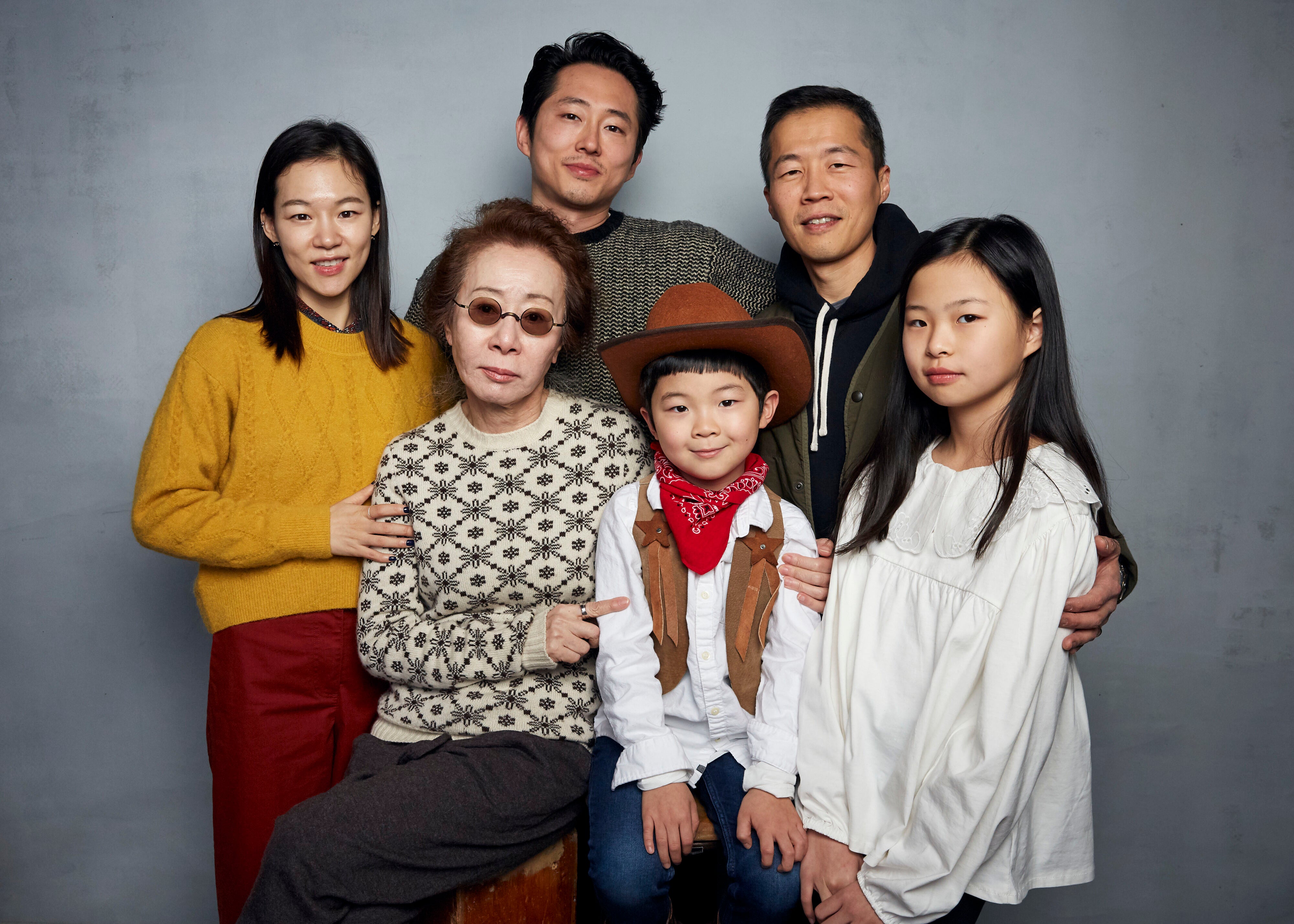In 'Minari,' harvesting an American dream
Lee Isaac Chung’s “Minari” wasn’t a large production

The riverbed, more than anything else, needed to be exactly right.
In Lee Isaac Chung’s Arkansas-set family drama, “Minari ” land is something more than a setting. It’s a future. It’s a dream. Jacob Yi (Steven Yeun) has moved his family to a wide-open Arkansas plot to farm the land and, hopefully, release him and his wife from years of toil at poultry plants. He tills it not for the area’s typical crops but for vegetables common to Korean cooking that he believes will feed other Korean immigrants like himself. His mother-in-law (Youn Yuh-jung) also finds a gentle creek bed to grow minari, the leafy vegetable popular in Korea.
In Chung’s film, the watery basin throbs with significance — a physical symbol of putting roots down, of Korean American harmony, of resiliency. At first, everywhere Chung looked, the soil was wrong, the flow not right. A location scout mentioned a place he had played as a child. Chung, in the midst of making a deeply personal story about his own upbringing, liked that connection.
Chung planted the spot with minari plants his father had been growing in Kansas City. The director had been too frightened to tell his family he was making a film about them, so his borrowing of the minari was mysterious. It was trucked in crates to the Oklahoma shoot. The minari in “Minari” was sowed by Chung’s father — an almost impossibly poignant bit of set dressing in a film that blooms in the gap between generations.
“That wasn’t lost on me,” Chung chuckles, speaking from Los Angeles. “I think he kind of knew what I was getting at with the film but we were just not talking about it. He wanted to come to the set and see what we were doing but I kind of said no. We had some friction during production, to be honest, and it didn’t go away until I showed him the film and then it kind of alleviated all the tension we had.”
“Minari,” which A24 is currently streaming with a wider digital release beginning Feb. 25, wasn’t a large production. It was made for less than $10 million. It’s modestly registered to the pace of life and the intimate scale of family. But the film, a Plan B production (Brad Pitt is an executive producer), has steadily gathered force since its premiere at Sundance, where it won the top drama prize.
The Golden Globes spawned a controversy by limiting “Minari” (a deeply American film, with dirt in its fingers, and largely Korean dialogue) to its foreign-language film category. But the movie has racked up awards elsewhere, including a bushel of nominations from the Screen Actors Guild, a reliable Oscar bellwether. And perhaps most importantly, its honest and authentic rendering of an Asian American family, in an entertainment world so often reliant on stereotype, has resonated meaningfully for many.
But before all that, “Minari” moved the parents of its makers first. At Sundance, Chung, Yeun and producer Christina Oh — all the children of first-generation immigrants from Korea — brought their mothers and fathers to the premiere, putting them up at the same Park City condo complex. Oh could feel her mother during the movie squeezing her arm in delight. When Yeun and his father stood up at the end, they hugged, and sobbed.
“I could hear Steven’s dad watching the film and getting emotional at times,” remembers Chung. “When I saw the way those two embraced after the screening, it was almost a mirror image to the way my dad and I embraced after I showed him the film. I guess that feeling felt very new to me.”
For Yeun, the Seoul-born 37-year-old actor of “Burning” and “The Walking Dead,” the film is about that emotion. Yeun’s family emigrated when he was 4 and ultimately settled in Michigan. In playing Jacob, Yeun was channeling his own father to see him anew.
“The internal emotional difficulty for me was breaking the mold and the safety of the life that I thought I knew, and how my parents or my father fit into that life,” says Yeun. “That’s a scary proposition in general, to reconstruct or dismantle pillars of your identity. My dad represents to me, the way I used to hold him, as this larger figure in my life that sacrificed and suffered and gave of his own life.”
Yeun pauses. “I think I was touching on something that formed me,” he says. “And I had to kind of break it down.”
Chung had written “Minari” with the possibility that the dialogue be changed to English. But Oh, a producer (“The Last Black Man in San Francisco”) with Plan B, believed firmly it should be in Korean — something few Hollywood executives would advocate for but that Oh considers a “no-brainer."
Oh’s parents came to California in the 1980s. They owned an often-robbed convenience store and later turned to a dry-cleaning business. She considers “Minari” an ode to their parents.
“Our parents came here chasing an idea of an American dream that was sold to them. For me, what’s incredible, taking a step back, we’re almost like their American dream come true,” says Oh.
Chung is hesitant to say what “Minari” means in a wider context, but he grants it’s made him feel like “part of something bigger than I am.”
“It’s felt like we are building a community amongst people who have experienced these things — even if they’re not Korean American,” he says. “That experience of being children of immigrants and wanting to understand your parents and wanting to honor them through their humanity.”
Bookmark popover
Removed from bookmarks